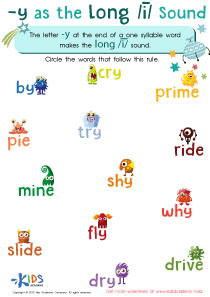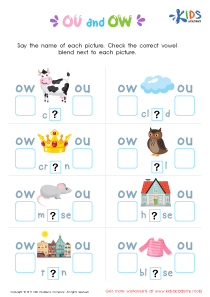Vocabulary expansion Normal Short Vowels Worksheets for Ages 7-8
6 filtered results
-
From - To
Enhance your child's vocabulary with our Vocabulary Expansion Normal Short Vowels Worksheets, designed specifically for ages 7-8. These engaging worksheets focus on reinforcing short vowels and promoting language skills through fun and interactive activities. Your child will explore a variety of vocabulary words, enabling them to build a stronger foundation in reading and writing. Each worksheet is tailored to simplify learning while encouraging creativity and critical thinking. By practicing with these resources, children will gain confidence in their vocabulary usage and improve their overall literacy skills. Discover the joy of learning with our captivating short vowels worksheets today!
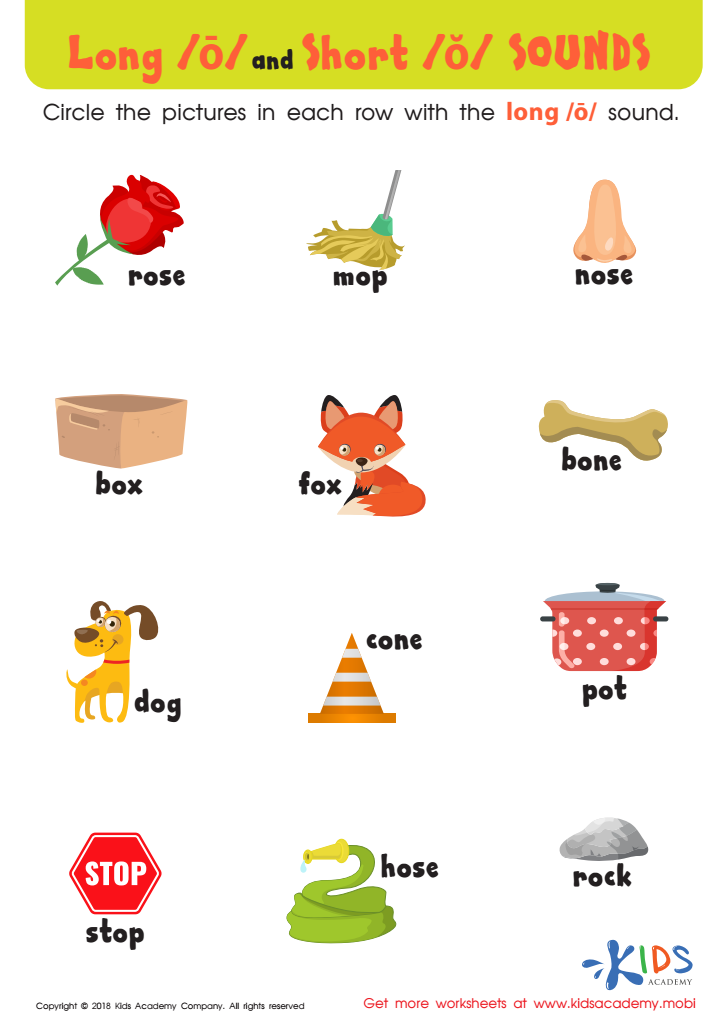

Reading: Long O and Short O Sounds Worksheet


Short Vowels /e/, /i/, and /u/ Worksheet


Long and Short U Worksheet
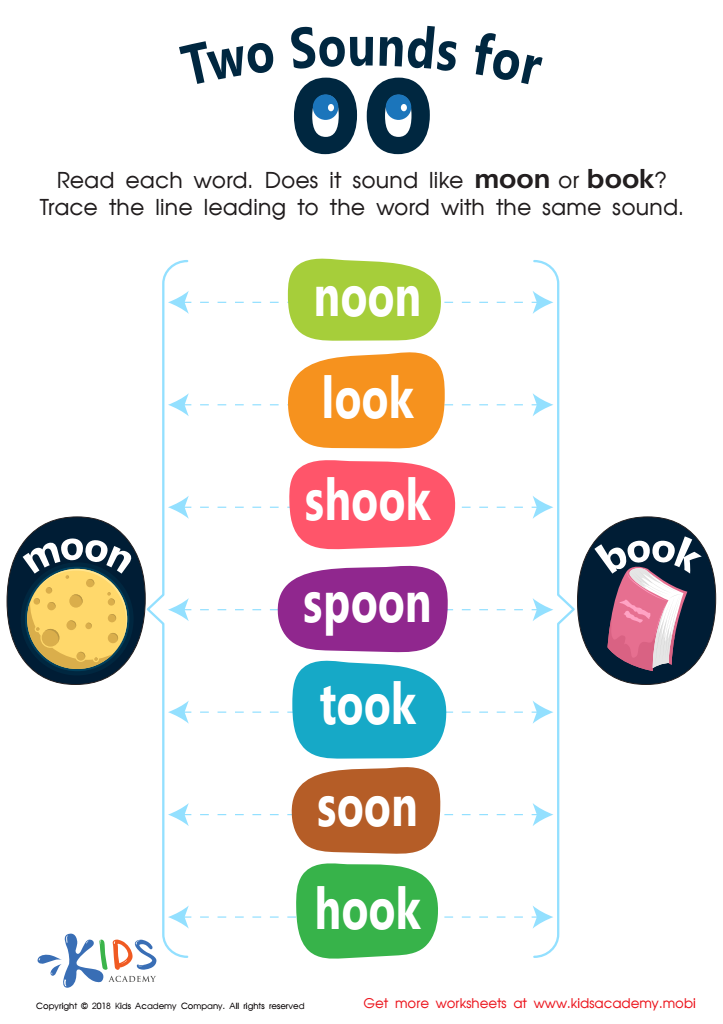

Two Sounds for OO Worksheet
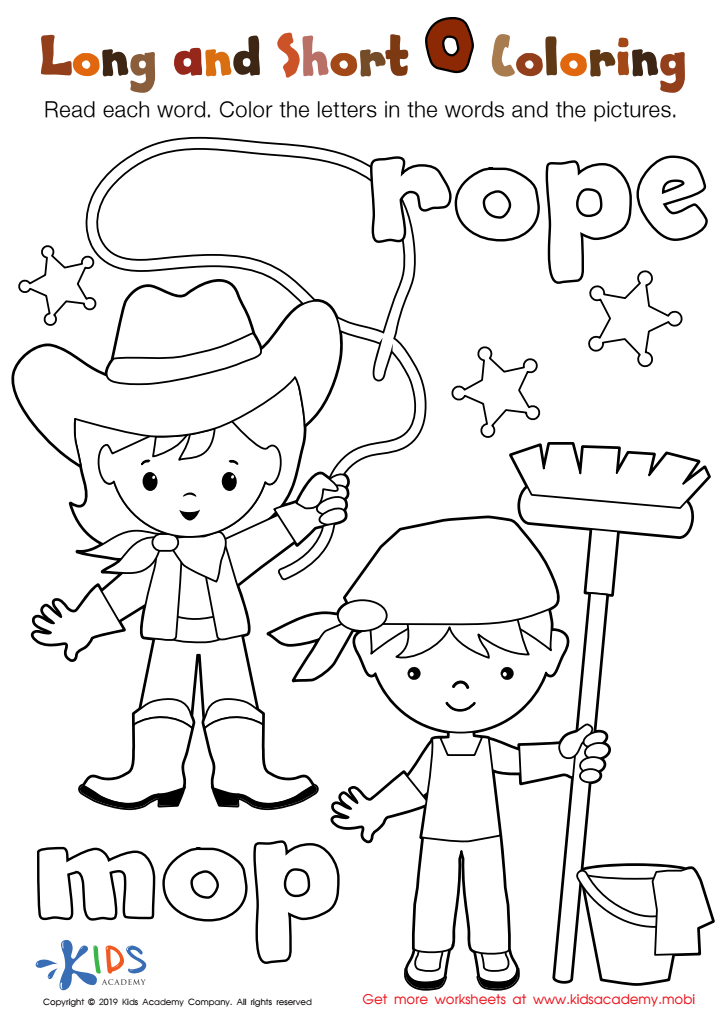

Long and Short O Worksheet
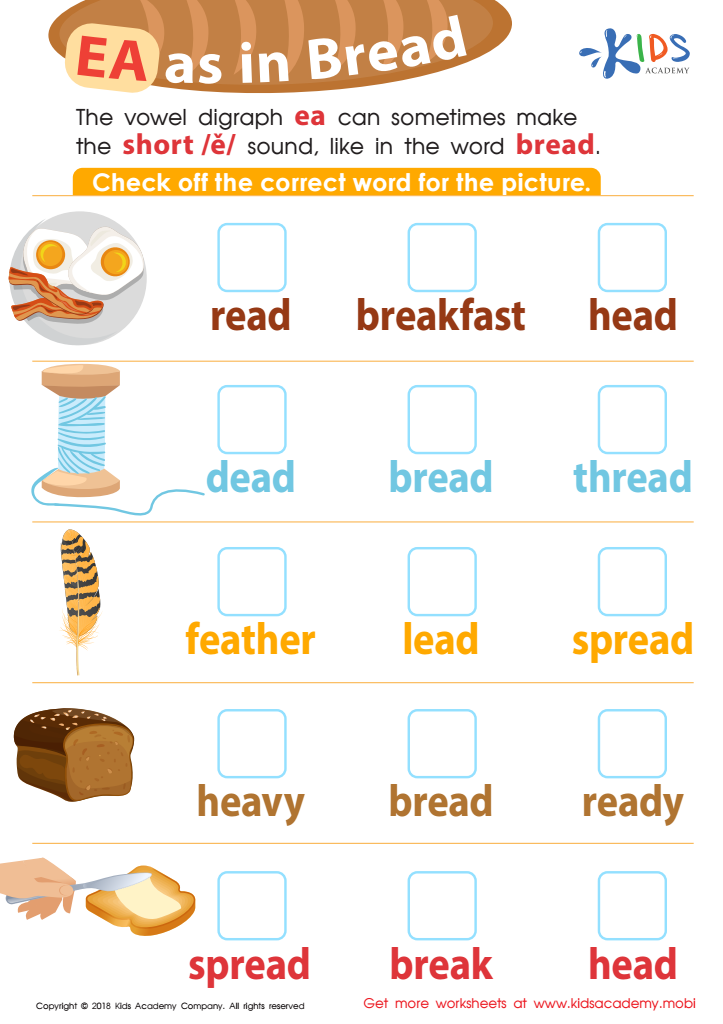

Reading: EA as in Bread Worksheet
Vocabulary expansion, particularly in normal short vowels, is crucial for children aged 7-8 as it lays the foundation for reading fluency and comprehension. During this developmental stage, children's language skills are rapidly evolving, and enhancing their vocabulary aids in their ability to express themselves clearly and engage effectively in conversations. Understanding short vowels is fundamental because they are the building blocks of many words. Mastering these sounds enables children to decode words more efficiently, boosting their confidence in reading.
Parents and teachers play a key role in vocabulary development. By introducing varied reading materials, engaging word games, and discussion-based activities, they create a rich linguistic environment that inspires curiosity and fosters learning. A strong vocabulary also enhances a child's ability to understand complex texts, which is essential for academic success. Moreover, vocabulary expansion can influence a child's overall school performance, impacting not just their literacy skills but also their capacity to excel in subjects such as science and social studies.
In summary, prioritizing vocabulary expansion related to short vowels not only enhances language skills but also builds a strong educational foundation. Supporting this development fosters a lifelong love of learning and the key skills necessary for thriving in school and beyond.
 Assign to My Students
Assign to My Students








